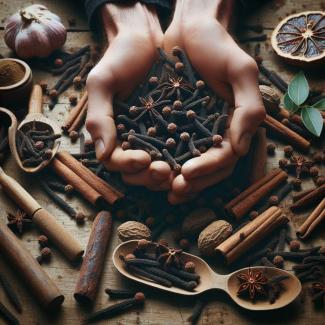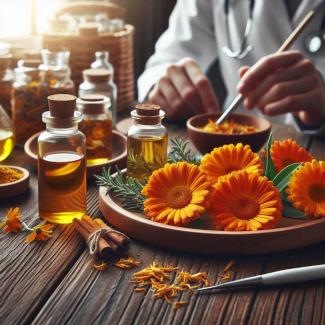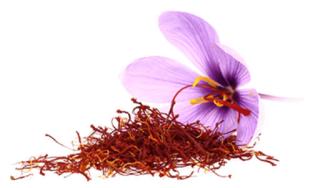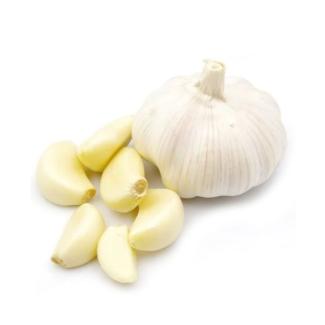
Cancer is one of the leading causes of death globally, with millions of people affected by various types of the disease. The search for effective cancer prevention strategies has led to the exploration of natural compounds with medicinal properties. Among the many natural remedies, cloves have emerged as a promising candidate in cancer prevention and management. Cloves, the dried flower buds of the Syzygium aromaticum tree, have been used for centuries in traditional medicine for their diverse health benefits, including antimicrobial, anti-inflammatory, and antioxidant properties.
Recent scientific studies suggest that cloves may also play a role in reducing the risk of cancer. This is attributed to their bioactive compounds, which exhibit anticancer properties, such as inducing apoptosis (programmed cell death) in cancer cells, inhibiting tumor growth, supporting the immune system, and reducing inflammation. In this comprehensive description, we will explore how cloves can contribute to cancer prevention by examining the key properties that make them an effective natural remedy.
1. Antioxidant Properties
One of the primary ways cloves contribute to reducing the risk of cancer is through their potent antioxidant properties. Oxidative stress, caused by an imbalance between free radicals and antioxidants in the body, is a major factor in the development of cancer. Free radicals are unstable molecules that can damage cells, DNA, and other vital cellular components, leading to mutations and cancerous growth.
Cloves are rich in antioxidants, which neutralize free radicals and prevent oxidative damage. The most important antioxidant in cloves is eugenol, a phenolic compound responsible for many of the spice's medicinal properties. Other antioxidants in cloves include flavonoids, tannins, and vitamin C, all of which contribute to the spice’s cancer-preventive potential.
a. Eugenol: The Key Antioxidant in Cloves
Eugenol is the most abundant bioactive compound in cloves, and it has been extensively studied for its antioxidant properties. Research has shown that eugenol effectively scavenges free radicals, thereby protecting cells from oxidative stress. By preventing oxidative damage to DNA, eugenol reduces the likelihood of mutations that can lead to cancer.
b. Role of Flavonoids
Flavonoids, another class of antioxidants found in cloves, have also been linked to cancer prevention. These compounds work by enhancing the body’s natural antioxidant defense systems and promoting the repair of damaged DNA. Studies have shown that flavonoids can inhibit the initiation and progression of cancer by neutralizing free radicals and preventing the formation of tumors.
c. Synergistic Effects of Antioxidants
The combination of eugenol, flavonoids, and other antioxidants in cloves creates a powerful defense against oxidative stress. This synergistic effect enhances the overall antioxidant capacity of cloves, making them highly effective in reducing the risk of cancer caused by free radical damage.
2. Anti-Inflammatory Action
Chronic inflammation is another major factor contributing to the development of cancer. Inflammatory processes can promote the growth and spread of cancer cells by creating an environment conducive to tumor formation. Therefore, reducing inflammation is a key strategy in cancer prevention.
Cloves possess strong anti-inflammatory properties, primarily due to their high content of eugenol. Eugenol has been shown to inhibit the production of pro-inflammatory cytokines and enzymes, such as cyclooxygenase-2 (COX-2) and nuclear factor-kappa B (NF-κB), which play a critical role in promoting inflammation.
a. Inhibition of COX-2 Enzyme
The COX-2 enzyme is involved in the synthesis of prostaglandins, which are signaling molecules that mediate inflammation. Overexpression of COX-2 is commonly observed in various types of cancer, and it contributes to tumor growth, angiogenesis (the formation of new blood vessels that feed tumors), and metastasis (the spread of cancer to other parts of the body). By inhibiting the activity of COX-2, eugenol reduces inflammation and limits the conditions that favor cancer development.
b. Modulation of NF-κB Pathway
NF-κB is a transcription factor that regulates the expression of genes involved in inflammation, immune responses, and cell survival. In many cancers, NF-κB is abnormally activated, leading to increased inflammation and resistance to apoptosis. Cloves, through their eugenol content, can suppress the activation of NF-κB, thereby reducing inflammation and promoting the death of cancerous cells.
c. Reduction of Pro-Inflammatory Cytokines
Cytokines are proteins that regulate immune responses and inflammation. In cancer, certain pro-inflammatory cytokines, such as interleukin-6 (IL-6) and tumor necrosis factor-alpha (TNF-α), promote tumor growth and metastasis. Studies have shown that eugenol and other compounds in cloves can reduce the levels of these cytokines, thereby mitigating inflammation and its cancer-promoting effects.
3. Antibacterial Properties
The antibacterial properties of cloves also contribute to cancer prevention, particularly in cancers associated with bacterial infections. Chronic bacterial infections can lead to persistent inflammation and an increased risk of cancer development. For example, Helicobacter pylori, a bacterium that infects the stomach lining, is a major risk factor for gastric cancer.
Cloves have been shown to possess broad-spectrum antibacterial activity, effectively inhibiting the growth of various pathogenic bacteria, including H. pylori. By eliminating or reducing bacterial infections, cloves help prevent the chronic inflammation that can lead to cancer.
a. Cloves and Helicobacter pylori
H. pylori is a major cause of chronic gastritis and peptic ulcers, which can progress to gastric cancer if left untreated. Studies have demonstrated that eugenol in cloves has potent antibacterial activity against H. pylori, reducing the bacterial load and minimizing the risk of infection-induced inflammation and cancer.
b. Inhibition of Other Cancer-Associated Bacteria
In addition to H. pylori, other bacteria have been implicated in cancer development, including Escherichia coli and Streptococcus species, which are associated with colorectal and oral cancers, respectively. Cloves’ antibacterial properties may help reduce the risk of these cancers by preventing bacterial infections and the chronic inflammation they cause.
4. Apoptosis and Tumor Growth Inhibition
One of the most promising aspects of cloves in cancer prevention is their ability to induce apoptosis, or programmed cell death, in cancer cells. Apoptosis is a natural process by which damaged or abnormal cells are eliminated from the body. In cancer, this process is often disrupted, allowing cancer cells to survive and proliferate uncontrollably.
Cloves contain compounds that can restore the balance between cell proliferation and cell death, thereby inhibiting tumor growth and promoting the elimination of cancerous cells.
a. Eugenol-Induced Apoptosis
Eugenol, the primary bioactive compound in cloves, has been shown to induce apoptosis in a variety of cancer cell lines, including breast, lung, prostate, and colorectal cancer cells. Eugenol achieves this by activating the intrinsic pathway of apoptosis, which involves the release of cytochrome c from mitochondria and the activation of caspases, enzymes that degrade cellular components.
b. Inhibition of Tumor Growth
In addition to inducing apoptosis, eugenol also inhibits the growth and proliferation of cancer cells by disrupting cell cycle progression. Research has shown that eugenol can arrest cancer cells at various stages of the cell cycle, preventing them from dividing and spreading. This dual action of promoting apoptosis and inhibiting cell division makes eugenol a potent anticancer agent.
c. Synergistic Effects with Chemotherapy
Studies have also explored the potential of eugenol to enhance the effects of conventional chemotherapy drugs. Eugenol has been found to sensitize cancer cells to chemotherapy, making them more susceptible to treatment. This synergistic effect could lead to improved outcomes in cancer therapy, potentially allowing for lower doses of chemotherapy and reducing the associated side effects.
5. Immune Support
A strong immune system is crucial in the body’s defense against cancer. The immune system is responsible for identifying and eliminating abnormal cells, including cancer cells, before they can form tumors. Cloves have been shown to support immune function, thereby enhancing the body’s ability to prevent and fight cancer.
a. Activation of Immune Cells
Cloves contain bioactive compounds that stimulate the activity of immune cells, such as macrophages, natural killer (NK) cells, and T cells. These cells play a critical role in identifying and destroying cancer cells. Studies have shown that eugenol and other components of cloves can enhance the cytotoxic activity of NK cells, increasing their ability to target and kill cancer cells.
b. Regulation of Immune Responses
In addition to activating immune cells, cloves also help regulate immune responses to prevent chronic inflammation, which can lead to cancer. By modulating the production of pro-inflammatory cytokines and enhancing the activity of anti-inflammatory cytokines, cloves help maintain a balanced immune response that supports cancer prevention.
c. Enhancement of Antioxidant Defense in Immune Cells
The antioxidant properties of cloves also extend to immune cells, protecting them from oxidative damage and ensuring their optimal function. By enhancing the antioxidant defense of immune cells, cloves help maintain a strong immune system capable of identifying and eliminating cancer cells.
6. Potential Applications and Future Research
While the current evidence suggests that cloves have significant potential in reducing the risk of cancer, more research is needed to fully understand the mechanisms behind their anticancer properties and to determine the optimal ways to incorporate them into cancer prevention strategies.
a. Dietary Incorporation of Cloves
One practical way to reduce cancer risk with cloves is through dietary incorporation. Cloves can be used as a spice in cooking, added to beverages such as tea, or consumed in the form of supplements. However, it is important to consider the appropriate dosage, as excessive consumption of cloves, particularly eugenol, can have toxic effects.
b. Clinical Trials and Human Studies
Most of the current research on the anticancer effects of cloves has been conducted in vitro (in cell cultures) or in animal models. While these studies provide valuable insights into the potential of cloves, clinical trials in humans are necessary to confirm their efficacy and safety in cancer prevention. Future research should focus on conducting large-scale human studies to determine the optimal dosage, duration, and form of cloves for cancer prevention.
c. Combination with Conventional Cancer Therapies
Given the potential of cloves to enhance the effects of chemotherapy and other cancer treatments, future research should also explore the possibility of combining cloves or their bioactive compounds with conventional therapies. This approach could improve treatment outcomes, reduce side effects, and enhance patients’ quality of life.
Cloves, with their rich content of bioactive compounds, offer a promising natural approach to cancer prevention. Their antioxidant, anti-inflammatory, antibacterial, and immune-supporting properties, combined with their ability to induce apoptosis and inhibit tumor growth, make them a powerful ally in reducing the risk of cancer. While more research is needed to fully understand their potential, incorporating cloves into a balanced diet and exploring their use in combination with conventional cancer therapies could provide significant benefits in the fight against cancer.
As with any natural remedy, it is important to consult with a healthcare professional before incorporating cloves into your cancer prevention strategy, especially if you are undergoing treatment for cancer or other medical conditions.





